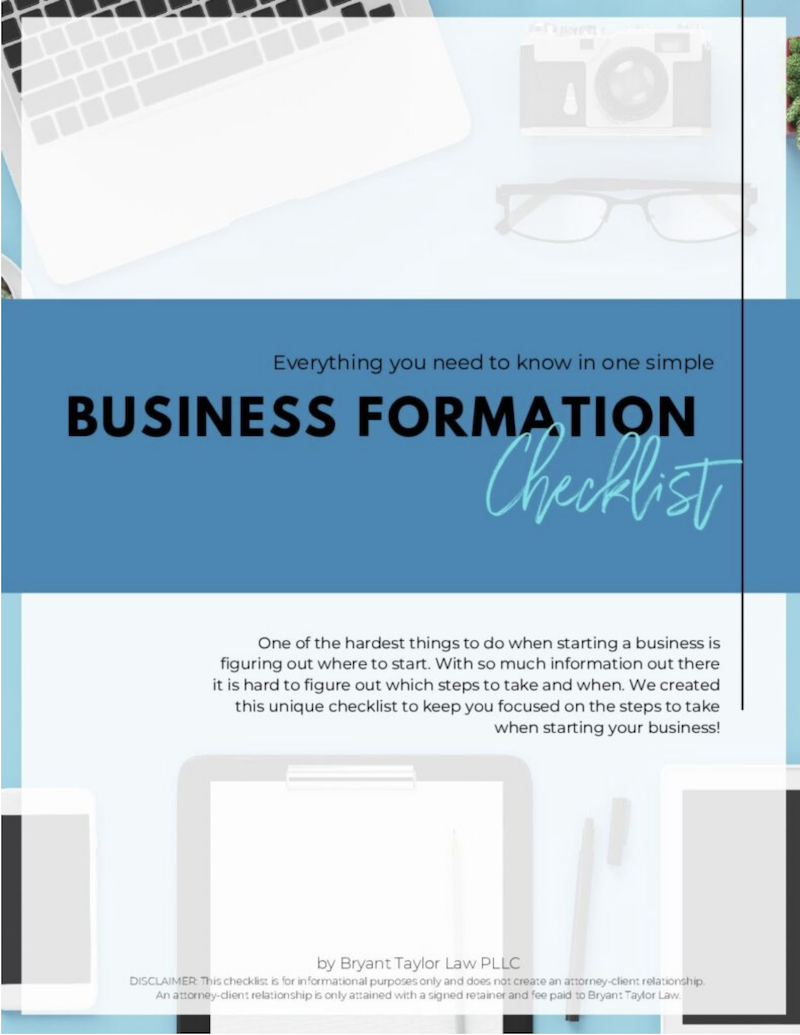A non-profit corporation is a business entity that provides a benefit to the public. In exchange for the public benefit, the corporation is exempted from paying taxes on the money the corporation receives. We previously discussed how to form a business in Florida, but here are the steps to forming a non-profit corporation in Florida.
1. Choose a business name
First, make sure the name is not the same or similar to another corporation. The name may contain the word “Corporation”, “Incorporated”, the abbreviation “Corp.” or “Inc.” However, the name may not contain the word “Company” or “Co.”
2. Determine business purpose
After you pick a name, establish the business purpose. The business purpose separates a non-profit from a for-profit corporation. Therefore, you must give careful consideration to the business purpose of the non-profit. The answers to the following questions will help you form the business purpose.
- What do you want to do?
- What population are your trying to serve?
- How do you plan to fulfill the goals for the organization?
You will need this business purpose to apply for tax exemptions (see step 7).
3. Appoint board of directors
Now it’s time to choose the board of directors. The board of directors are individuals who oversee the non-profit. They vote on matters involving the non-profit and serve for pre-determined terms. The non-profit corporation must have at least 3 board members. Also, the board members must be at least 18 years old. However, they do not have to reside in Florida.
4.Incorporate (preferably with a business formation attorney)
This step makes the non-profit a legal entity in Florida. Some of these steps are simpler than others, but they are all very important. An experienced business attorney can help guide you through this process to ensure every step is followed correctly.
a. File articles of incorporation
The information provided in the articles of incorporation help establish eligibility for certain tax exemptions. Therefore, it is critical this document is filled out correctly to avoid disqualification from tax exemptions. File the articles of incorporation with the Florida Division of Corporations and pay the applicable filing fees.
b. Create the bylaws
Bylaws are written guidelines and rules for how the non-profit will operate. It is not required to file the bylaws with the state and the state does not require any specific provisions in the bylaws. However, this document will govern the non-profit and may be subject to review by other state and federal agencies for tax or fundraising purposes.
c. Hold Organizational Meeting
The board of directors use this meeting to adopt the bylaws. They can also use this meeting to vote and create written policies relating to conflict of interests, code of ethics and financial accountability. This meeting should have a written record signed by the chairperson of the board.
d. Create Records Book
Florida law has specific requirements in regards to the records that a non-profit must keep. These records include minutes of all meetings, accounting records, the articles of incorporation and the identity of the members and board of directors. A records book is an organized method of keeping these records in one place so you can access them quickly when needed.
5.Obtain a Federal Employer Identification Number (EIN)
In order to open a business bank account, the non-profit must obtain an EIN. You can obtain an EIN online, and an EIN is necessary before hiring any employees.
6. Register with State agencies
There are several state agencies in Florida that require registration depending on the nature of the business. However, in all instances, you must register with the Division of Consumer Services if you intend to solicit contributions from the public. In addition, the non-profit will need to register with the Florida Department of Revenue.
7. Apply for appropriate tax exemptions
Florida businesses are taxed on the state, federal and local level. Non-profits can apply for various exemptions from these taxes depending on the nature and purpose of the non-profit. Before conducting business, it is extremely important to identify and decide on the specific federal exemptions that the non-profit will obtain. For example, 501(c)(3), 509(a)(1) and 509(a)(2) are all types of exemptions that a non-profit corporation may qualify for.
Forming a non-profit corporation is more complicated than forming a for-profit business. An experienced business attorney can help with the formation and operation of a non-profit to ensure full compliance with Florida law. Whether you are interested in forming a non-profit corporation in Florida or are running a non-profit without the advice of a Fort Lauderdale business lawyer, call us at 954-282-9331 or request a consultation online to see what we can do for you.
Bryant Taylor Law
333 Las Olas Way
Suite 416
Fort Lauderdale, FL 33301
ventus
Latest posts by ventus (see all)
- The Role of a Business Attorney in Estate Planning - October 13, 2022




